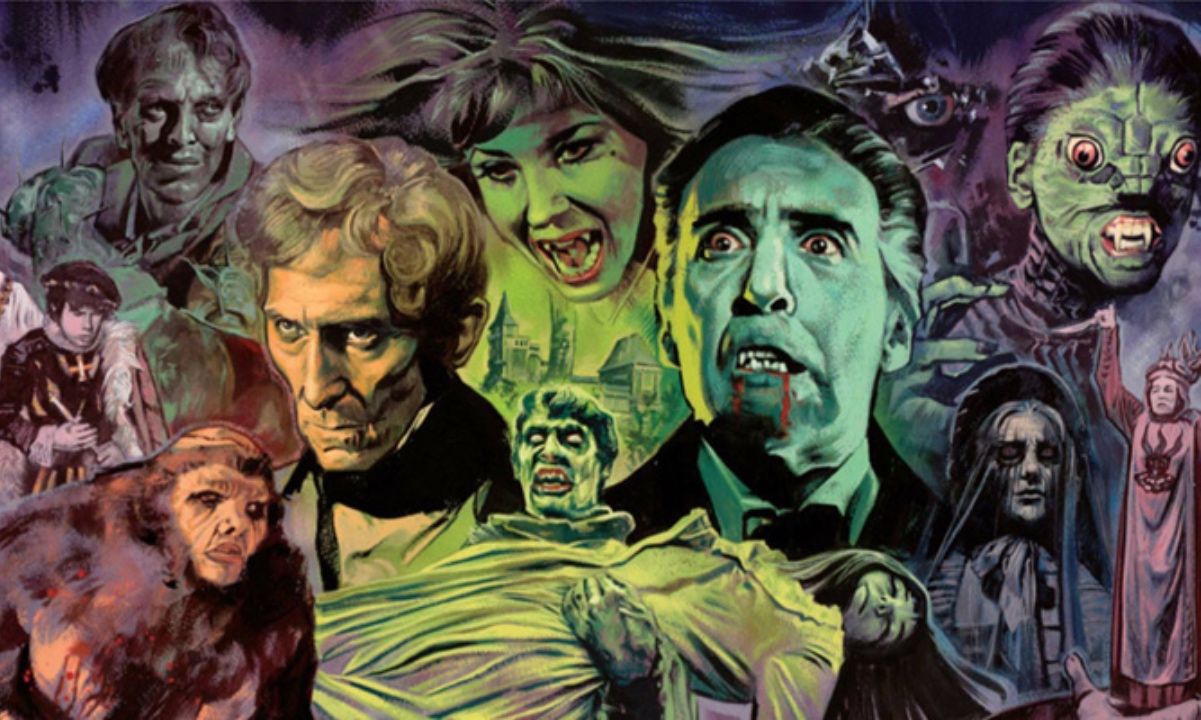Iconic British horror producers Hammer Films have struck a deal with Network Distributing in the U.K. to create Hammer Studios Ltd, a move that will see the new entity take over control of all of Hammer’s output, from the likes of Dracula and The Quatermass Experiment through to modern releases such as The Woman in Black and 2020’s The Lodge. The creation of Hammer Studios will see a renewed effort put into the restoration of the prolific Hammer back catalogue as well as increased investment in new ventures in the coming years.
Network Distribution have become well-known for bringing to home media long lost and forgotten cult movies and TV series, and have grown into one of the biggest players in the field since their beginning in 1997. Film buffs have watched the company unearth and revive many shows and films from the 1960s and 1970s, and release restorations of The Prisoner, Monty Python’s Flying Circus and many British movies under their imprint of The British Film, making them one of the go to names for collectors of old media who are always on the lookout for rarities.
In all, Network Distribution have released over 3000 titles in the last 24 years, having joined forces with the BBC, ITV, Studiocanal, Fremantle and more to revive older properties and make them suitable for both streaming on channel owned subscription services such as BritBox, and on their own digital channels. Combining with Hammer Films will open up a gateway to a treasure trove of classic horrors starring the likes of Christopher Lee and Peter Cushing and featuring some of the best loved adaptations of classic works by Edgar Allen Poe, Henry James and more.
Networks managing director Tim Beddows said: “This partnership is a really exciting opportunity to merge Hammer’s amazing library with Network’s infrastructure. Whilst we work our way through restoring its entire back catalogue for future generations’ enjoyment, we’re equally excited about the development of new productions from the Hammer canon.”
Hammer CEO Simon Oakes added: “This new partnership will, for the first time, professionalize the restoration and creation of elements that are essential for distribution of the Hammer library across all media. At the same time we will, with Network, be able to build on the legacy of Britain’s most iconic film brand, one that started in 1934 and is alive and kicking in 2021.”
Hammer Films was established in 1934, and while they have had a rocky road from the start, somehow they have continued to survive, just like some of the creatures in the genre they became most known for. Initially Hammer were the producers of four movies between 1935 and 1937, after which the company were forced into liquidation by a slump in the British Film industry. After being brought back to life in 1938, the company spent a few years distributing the movies of other producers, until Hammer Film Productions was resurrected in the late 1940s, and while the studio couldn’t afford big name stars, they were able to purchase a number of radio series to adapt into films.
After a brief dabble in science fiction, the studio’s first main experiment with the horror genre came about in 1955 with The Quatermass Experiment, an adaptation of a BBC TV serial. Within only a few years, Hammer had grown a reputation as an “X Certificate” company, the productions of which were often described by the Censors using words like “obscene”, hideous” and “outrageous” which saw the studio’s profile sky rocket as a horror giant.
By the 70s, gory American movies were taking over and Hammer struggled until they were forced into liquidation in 1979. The company seemed to dead and buried for good, even though their old movies continued to be the staple of late night television, but in 2007 a consortium revived the company once again, leading to the production of a whole new wave of horror movies including Wake Wood, The Resident, Let Me In, The Woman in Black and its sequel Angel of Death. With their new collaboration with Network Distribution looks set to keep this run of Hammer’s production going for a few years to come. This news comes to us from Variety.

